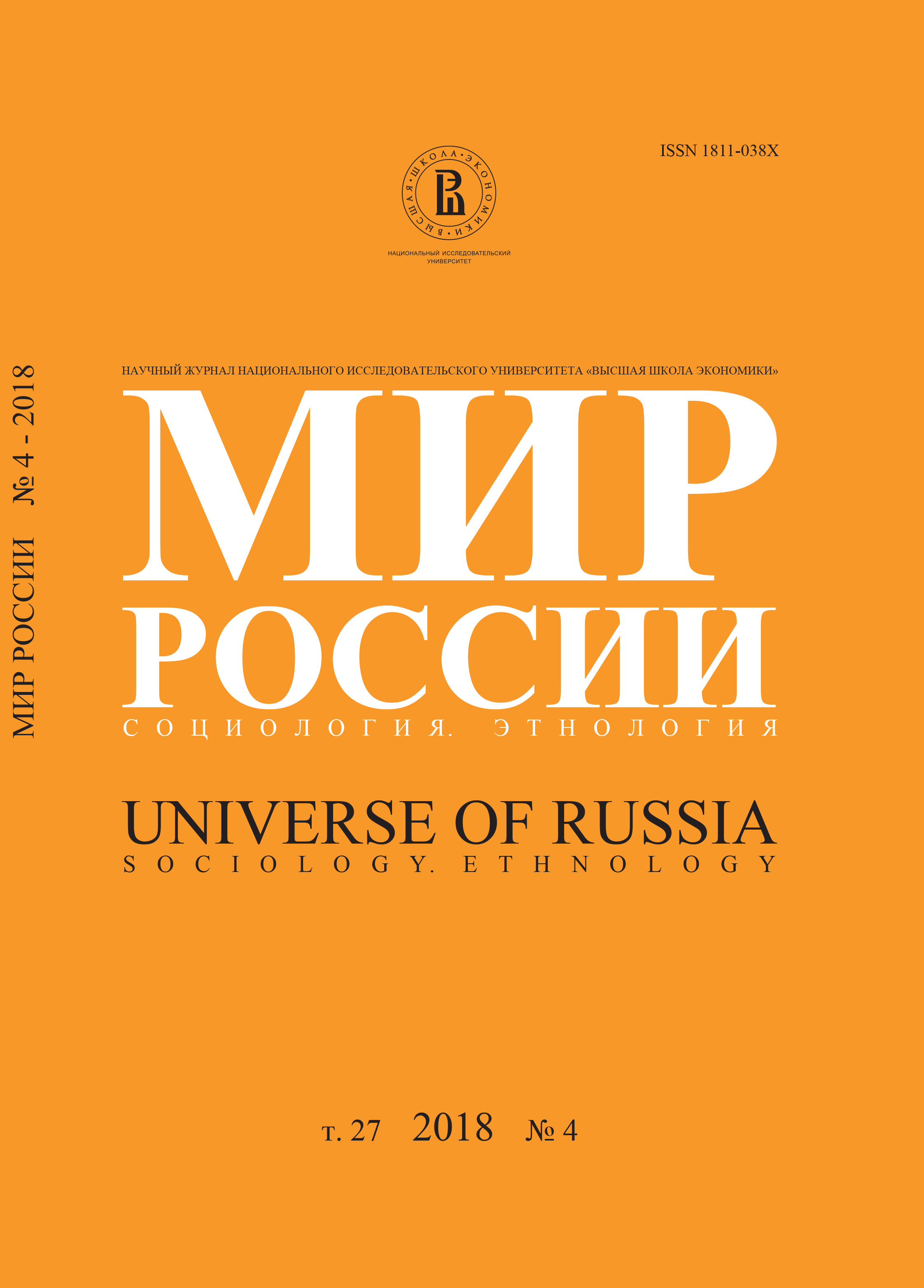Archaic Economic Institutions: “Scattered Manufactories” in Russian Towns
Abstract
Simon Kordonsky – PhD in Philosophy, Tenured Professor, Head, Laboratory for Local Administration, Department Head, Faculty of Social Sciences / School of Public Administration / Department of Local Administration, National Research University Higher School of Economics. Address: 20, Myasnitskaya St., Moscow, 101000, Russian Federation. E-mail: skordonsky@hse.ru
Juri Plusnin – DSc in Philosophy, Professor, Faculty of Social Sciences / School of Public Administration / Department of Local Administration, Deputy Laboratory Head, Laboratory for Local Administration, National Research University Higher School of Economics. Address: 20, Myasnitskaya St., Moscow, 101000, Russian Federation. E-mail: jplusnin@hse.ru
Citation: Kordonsky S., Plusnin J. (2018) Archaic Economic Institutions: “Scattered Manufactories” in Russian Towns. Mir Rossii, vol. 27, no 4, pp. 6–30 (in Russian). DOI: 10.17323/1811-038X-2018-27-4-6-30
The authors discover and describe a “new” economic phenomenon, which they term “scattered manufactories”. In some towns of provincial Russia, people engage in cooperative economic activities, which in their form and substance are strikingly similar to pre-industrial manufacturing in Europe and Russia in the 14–18th centuries. In contrast to the modern institution of distributed manufacturing, where information and other modern technologies are widely used, scattered manufactories are a postarchaic
economic institution, in which production and industrial relations have a similar organization to pre-modern guilds and artels. Several such manufacturies, found in Uryupinsk, Novokhopersk, Labinsk, Kimr and Rostov the Great, are described and analyzed in the article. Importantly, most of these businesses represent the informal sector of local economies and exist outside the legal framework. The roots of their informal nature are traced back to the economic crisis of the 1990s, the general underdevelopment
of local labor markets, and a generally high tolerance to rule evasion and informal relations in Russia. Another reason is the currently excessive regulatory and fiscal pressure targeting small business and self employent in Russia. The authors argue that scattered manufactories are very common and are highly likely to be found in other local communities, particularly in ones that enjoy access to unique natural resources (e.g. down, leather, fur) and/or have a tradition in craft.






